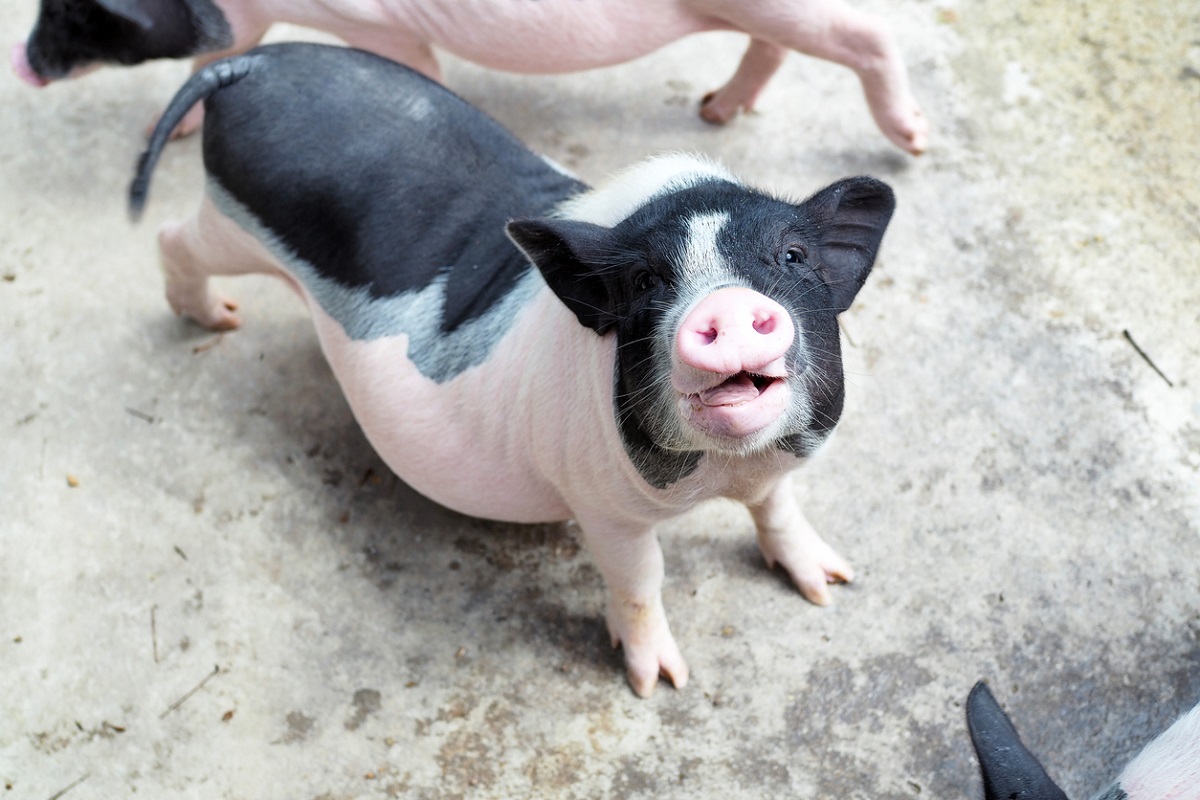
GM Phytase Corn Found to Promote Digestion of Amino Acids in Pigs
February 9, 2022| |
By reducing phytic acid during digestion, pigs were able to properly digest amino acids resulting in better nutrition for optimum growth, reduction of pollution caused by phosphorus found in animal manure, and reduction of production cost by eliminating expensive feeds supplementation.
Phosphorus in plant seeds is mainly stored in the form of phytic acid. In corn, 60-80% of phosphorus is in the form of phytate. Pigs and poultry usually find it hard to utilize phytic acid due to the lack of enzyme to digest it leaving a utilization rate of 0-40%. To compensate and optimize animal growth, expensive phosphate supplementation is done by adding phytase produced through microbial fermentation during feed preparation. Another way to address this is through the development of genetically modified (GM) phytase corn with the aim to improve the utilization rate of phosphorus, calcium, and other elements to reduce the costs of feed production.
Chinese researchers focused on the nutritional components and protein quality of the GM corn that expressed the phytate gene. They used the Bama miniature pig model to evaluate the digestibility of main nutrients in GM corn, its parentals, and a commercial corn variety, especially for protein and amino acids. They were able to determine that the content of protein, fat, vitamins, and minerals of all strains of corn were found to be in the normal range as per OECD and ILSI guidelines. They concluded that the phytase gene in GM corn did not change the main nutrients nor the composition of amino acids, vitamins, and minerals. They also found that the gene does not interfere with the digestion of protein or amino acid and was actually able to promote the digestion of amino acids by reducing the content of phytic acid during digestion.
The study was published by GM Crops & Food.
| |
You might also like:
- USDA Deregulates Corn for Phytase Production Developed Using Genetic Engineering
- Kenyan Livestock Farmers Appeal for Importation of GM Animal Feeds
- Transgenic Pigs that Digest Grains Better can Reduce Pork Industry's Carbon Footprint
Biotech Updates is a weekly newsletter of ISAAA, a not-for-profit organization. It is distributed for free to over 22,000 subscribers worldwide to inform them about the key developments in biosciences, especially in biotechnology. Your support will help us in our mission to feed the world with knowledge. You can help by donating as little as $10.
-
See more articles:
-
News from Around the World
- Global Food Prices Increase in January
- Oxitec to Conduct Mosquito Technology Tests in the US in 2022
- UC Davis Team Identifies Wheat Gene that Increases Yield
- Study Pinpoints Gene Vital for Rice Grain Development
- Researchers Reveal Mechanisms in Air Channels Formation in Submerged Plants
- PH Agri Secretary: Biotechnology a Powerful Tool of Science to Feed the Future
- Adoption of GM Crops Can Help Fight Climate Change -Study
- Study Reveals Friendly™ Fall Armyworm Reduces Population; Provides Long-Term Protection
-
Research Highlights
- Study Shows SPL9 Mediates Freezing Tolerance in Plants
- New Tool Helps Strip Down Corn Ancestor's Traits for Research Exploration
- GM Phytase Corn Found to Promote Digestion of Amino Acids in Pigs
-
Plant
- Report Tackles Why the UK Should Embrace Biotech and Gene Editing
-
Read the latest: - Biotech Updates (January 14, 2026)
- Gene Editing Supplement (December 17, 2025)
- Gene Drive Supplement (February 22, 2023)
-
Subscribe to BU: - Share
- Tweet

